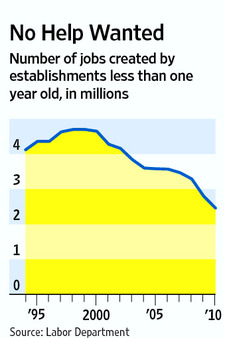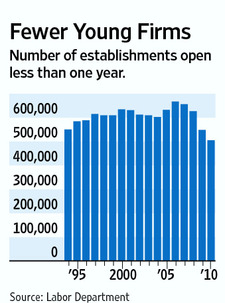(p. F2) . . . solar power, which makes extensive use of robots in fabricating the cells, and has no moving parts to service once it is up and running, may be an odd choice for job creation.
“It’s just not that labor-intensive,” said Howard Axelrod, an engineer and economist. And as for the jobs it creates, there may be a price elsewhere, Dr. Axelrod said.
. . .
Build enough solar plants and some coal plants will shut down; that would amount to firing Peter to hire Paul.
. . .
And, economists point out, some of the work that renewable energy creates goes to people who already have jobs — roofers who install the panels or truck drivers who move them around, or steel workers who make towers for new wind machines.
Some of the jobs could eventually go elsewhere. Two years ago, Evergreen Solar, which got $58 million in aid from Massachusetts for a factory in Devens, said it would shift production to China instead.
. . .
The debate is part of a larger discussion of what constitutes a “green” job. In October 2009, Congress gave the Bureau of Labor Statistics a special appropriation to count them.
. . .
“Driving a bus is driving a bus, right?” said Connie Mack, Republican of Florida. Hilda Solis, the secretary of labor, said they were “green buses.” But aides later clarified that the bureau counted any bus driving job as green because it preserved natural resources.
None of this suggests that green is bad, just that it is not particularly job-heavy. In December 2010, Susan Combs, the comptroller of Texas, reported that school districts in her state were giving tax abatements to lure new jobs, but had to give $1.6 million for every wind energy job. Manufacturing jobs could be created for $166,000 each.
For the full story, see:
MATTHEW L. WALD. “Solar Power Industry Falls Short of Hopes in Job Creation.” The New York Times (Weds., October 26, 2011): F2.
(Note: ellipses added.)
(Note: the online version of the article has the date October 25, 2011.)








